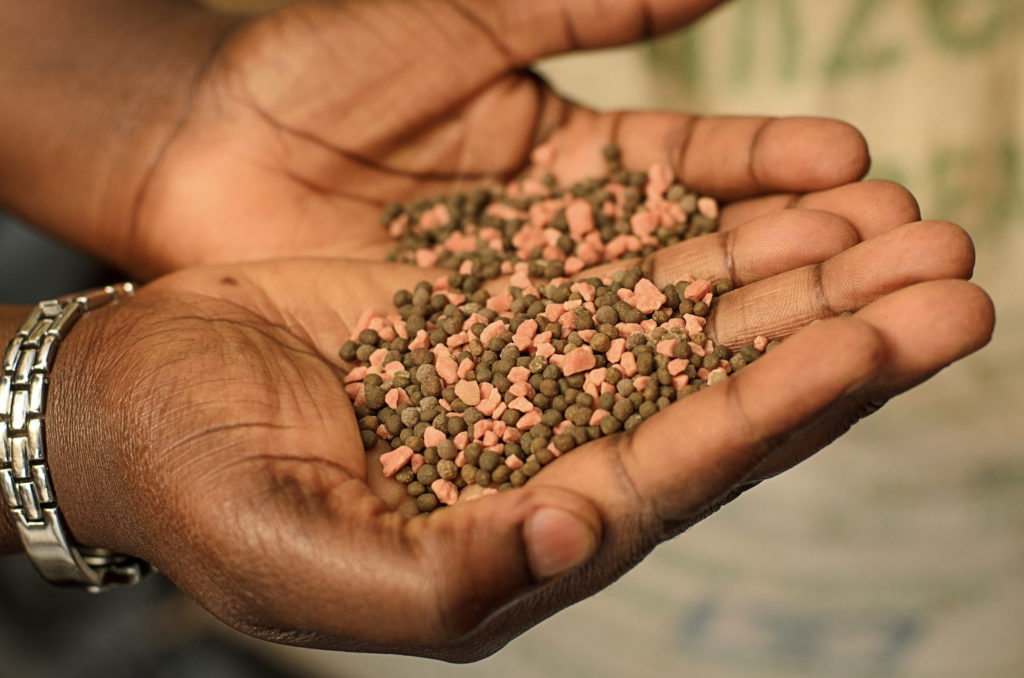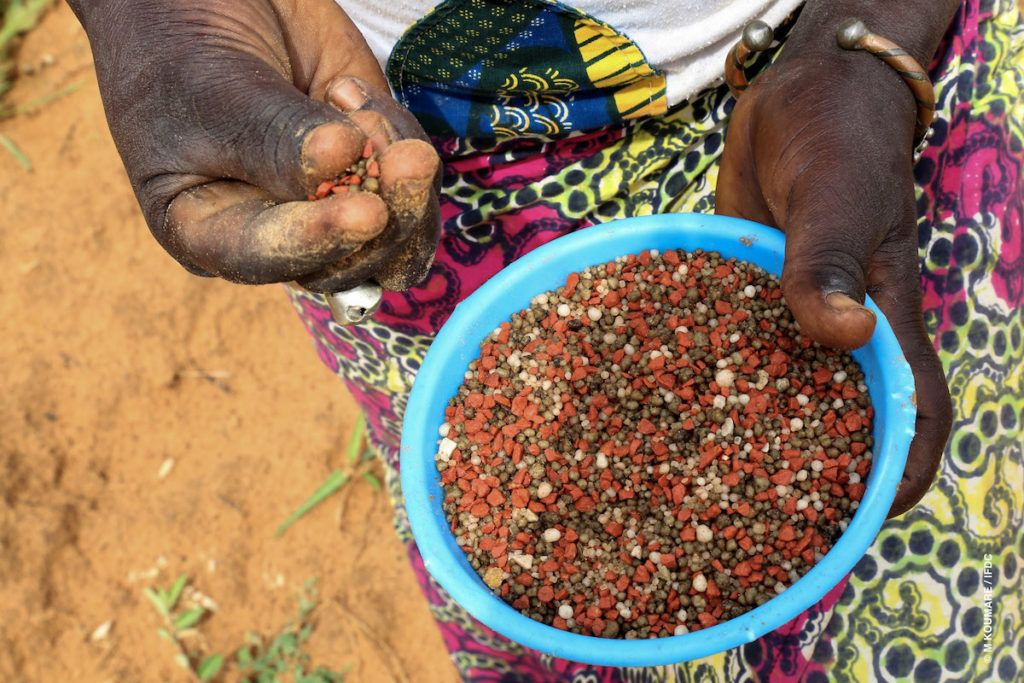
Many West African fertilizer value chain actors, especially smallholder farmers, desire and expect to use quality fertilizers, so they can profit to support their livelihoods; however, inappropriate fertilizer bulk blending practices across the region are denying farmers the opportunity to reach their yield potentials and obtain the desired dividends from their farm investments.
Considering the urgent need to address these fertilizer quality issues and present opportunities for farmers to increase their productivity, the Feed the Future Enhancing Growth through Regional Agricultural Input Systems (EnGRAIS) Project for West Africa worked closely with the Economic Community of West African States (ECOWAS) and other strategic regional fertilizer sector actors to develop the innovative West Africa Fertilizer Bulk Blending Guide. This guide will serve to harmonize fertilizer bulk blending practices across the region.
The guide provides stakeholders and blenders in the region with the technical information they need to produce blended fertilizer grades that meet international standards.
In 2010, IFDC conducted a regional fertilizer quality assessment to provide evidence for implementing a harmonized fertilizer quality control regulation in West Africa. The study identified a lack of technical capacity of blenders as a critical cause of the region’s poor quality of blended fertilizers. This study was the basis for developing the ECOWAS Regulation C/REG.13/12/12 for fertilizer quality control. The new West Africa Fertilizer Bulk Blending Guide addresses this lack of capacity and promotes quality bulk blending across the region.

“Farmers in West Africa have faced fertilizer quality challenges for a long time, so we are delighted that, as a compilation of uniform best practices and critical principles on quality fertilizer blending, the guide provides stakeholders and blenders in the region with the technical information they need to produce blended fertilizer grades that meet international standards, including those of the Economic Community of West African States, while remaining environmentally friendly and profitable,” says Patrice Annequin, EnGRAIS Chief of Party.
The guide will support over 80 blending plants in the region to produce high-quality crop- and soil-specific fertilizers for West African farmers. To enable efficient use of the tool, the EnGRAIS project conducted technical training programs for key industry actors to ensure adherence to the principles and best practices described in the guide.
The guide will also indirectly impact the work of other West African fertilizer value chain actors, including regional institutions, public and private sector stakeholders, donor organizations, non-governmental organizations, and members of the West African Fertilizer Association (WAFA).
More about the EnGRAIS Project:
EnGRAIS and its partners will continue to deliver timely, relevant, and critical information on fertilizer, facilitate increased availability of quality fertilizers, and deploy appropriate technologies to support farmers and other value chain actors across the region to boost agricultural production and productivity.
EnGRAIS is funded by the U.S. Agency for International Development and implemented in partnership with ECOWAS, the West and Central African Council for Agricultural Research and Development (CORAF), WAFA, and other relevant private sector organizations.




